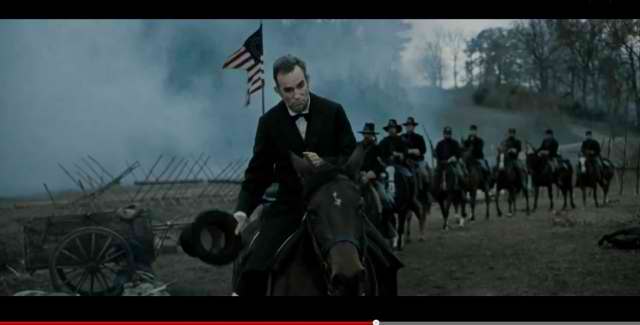Well, I fear as if I’m going to be accused of high crimes and misdemeanors, but less than a quarter the way through Lincoln I worried that if I saw one more cliche I was going to throw up. I wanted this movie so bad to be good. No. I wanted it to be great. I mean, after all: Spielberg and Lincoln? I was cheering for it until I could no longer turn off my brain, which kept telling me that I was watching a disaster of a movie. Daniel Day-Lewis was towering, I thought, in an impossible role. Lincoln had to save the Union, Day-Lewis had to save a movie, and couldn’t. Every other character was a stereotype, a cardboard-cutout. Tony Kushner showed clearly that he’s a playwright, not a screenwriter: much of the language was grand and fed the tendency to largeness without purpose. The power of film’s intimacy was almost wholly lost except for a few scenes. You always felt like you were going to get an oration rather than a conversation.
It shouldn’t have been named LINCOLN, but “A Critical Episode in Lincoln’s Presidency or How I Passed the 13th Amendment.” It was a small focus that was supposed to provide a lens into the character of the man and turbulence of the times, but it just was small. I was annoyed and even angry at the pretense, the build-up, the supposed importance of this movie. You can tell its director and music director grew up in the 50s because they left no musical or cinematic cliche from that period untouched. At the end at the almost final scene, as Lincoln is leaving the White House, there is such a cascade of verbal and visual cliches it hurt my head. I prayed that that scene wouldn’t end with the happy and proud African American butler turning back suddenly to watch the tall man walk down the hall into the sunset, turning into a silhouette. Alas, my prayers went unanswered. I almost expected to hear “Shane! Shane! Shane!”
If you want to see another great performance from Day-Lewis, go see it, otherwise, stay home. I won’t see it again.



